
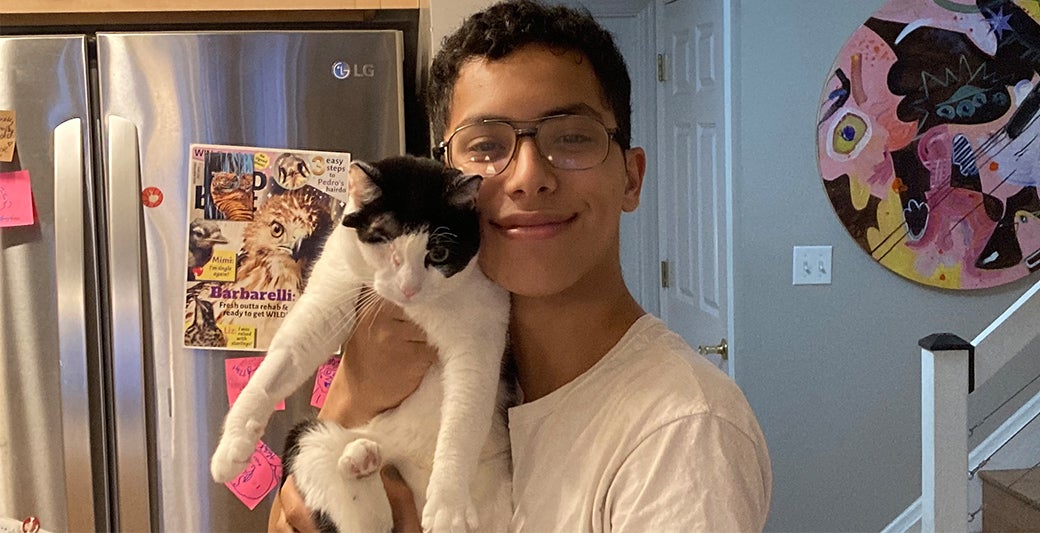
Tarek Z. had just returned home after a long weekend when he noticed that his three-year-old cat, Charlene, had sustained an eye injury while she was being cared for by his housemates.
“I was devastated,” says Tarek, a freelance actor and stand-up comedian in his early twenties from Brooklyn. “Her right eye was completely closed up, and she was also missing two claws on her right hind leg.”
Tarek rushed Charlene to a nearby veterinary emergency hospital, where doctors confirmed she had experienced physical trauma to her eye lens and claws. They told Tarek that Charlene was also susceptible to feline post-traumatic ocular sarcoma (a potential cancerous eye tumor).

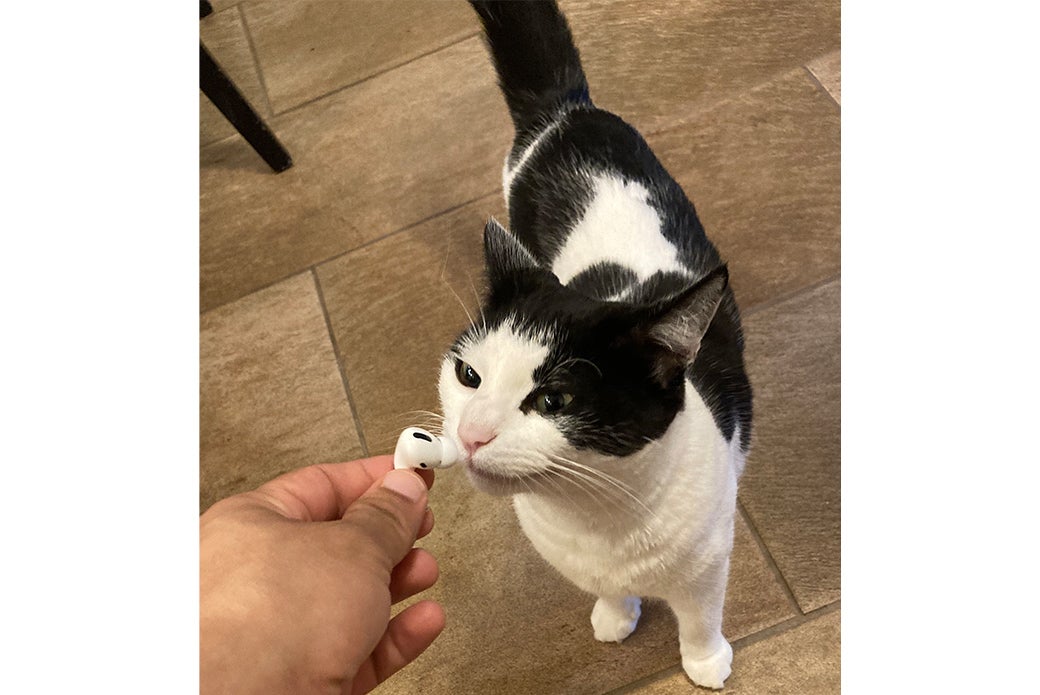
“They told me Charlene needed to see a veterinary ophthalmologist, but they were booked through February 2022,” Tarek says. “I was at a loss. I had already spent several hundred dollars by this point and couldn’t afford more. I didn’t know what to do.”
That night, Tarek tearfully resigned himself to surrendering Charlene to an animal shelter, where he hoped she could get the necessary veterinary treatment and find another loving home.
“A Last, Lifesaving Option”
Tarek came to the ASPCA Adoption Center on November 22 with Charlene in tow.
“All the other shelters were full,” he says. “I work part-time, don’t have family here and knew Charlene needed surgery. I was sobbing. I felt I had no choice but to give her up.”

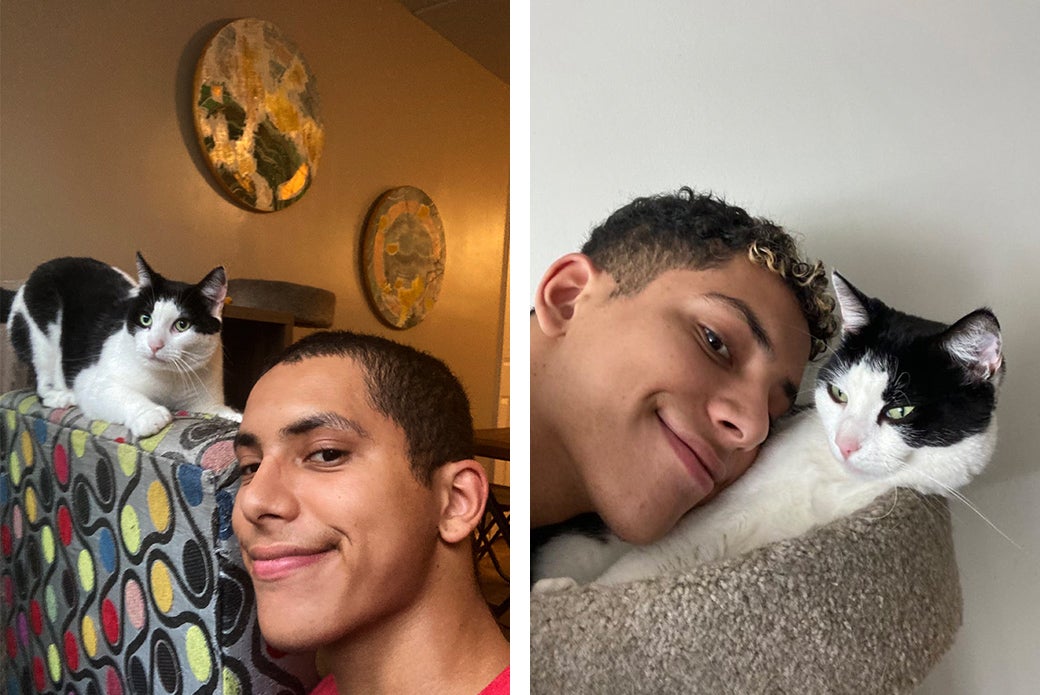
Tori White, an ASPCA Client Programs Liaison, met with Tarek and listened patiently while he explained his situation. She contacted Yessenia Castillo, Senior Client Service Representative at the ASPCA Animal Hospital. Working with security officer Shorna Williams and Jamie Flesch, a Veterinary Support Associate with the ASPCA’s Midwest Office, Tori and Yessenia got Charlene an appointment at the hospital that day.
“Everyone was incredibly kind and comforting,” says Tarek. “I was so thankful.”
A Surgical Solution
Dr. Janice Fenichel, who first examined Charlene, diagnosed the cat as having a penetrating corneal injury—or injury at the front part of her eye. Her condition would require the surgical removal of her right eye, a procedure called enucleation.
“In cats, eye pain is manifested by squinting and tearing, and Charlene did both,” said Dr. Fenichel, who admitted Charlene, helped manage her pain and scheduled her surgery for the following day.

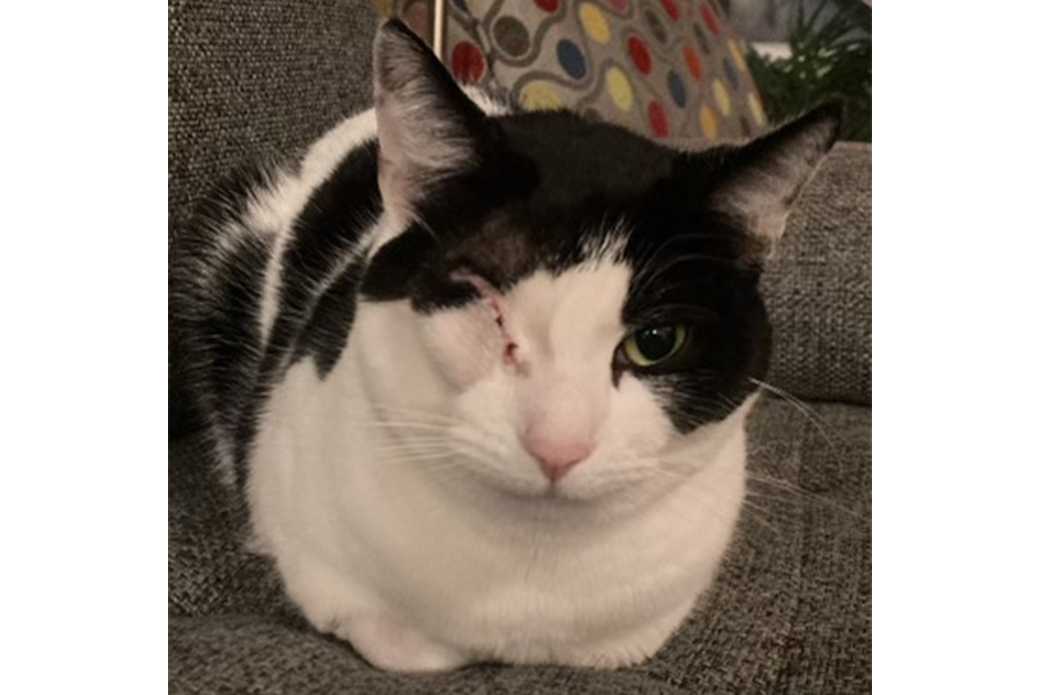
Though the ASPCA does not have a veterinary ophthalmologist on staff, senior veterinarians have expertise performing enucleations on dogs and cats.
Charlene’s surgery was made possible through the One ASPCA Fund, a program with the goal of keeping pets and people together by covering the cost of medical treatment for qualified cases that have a good prognosis and require fairly short-term care.
Dr. Anna Whitehead performed Charlene’s surgery, removing her right eye and the surrounding soft tissue before sewing the upper and lower lids together.

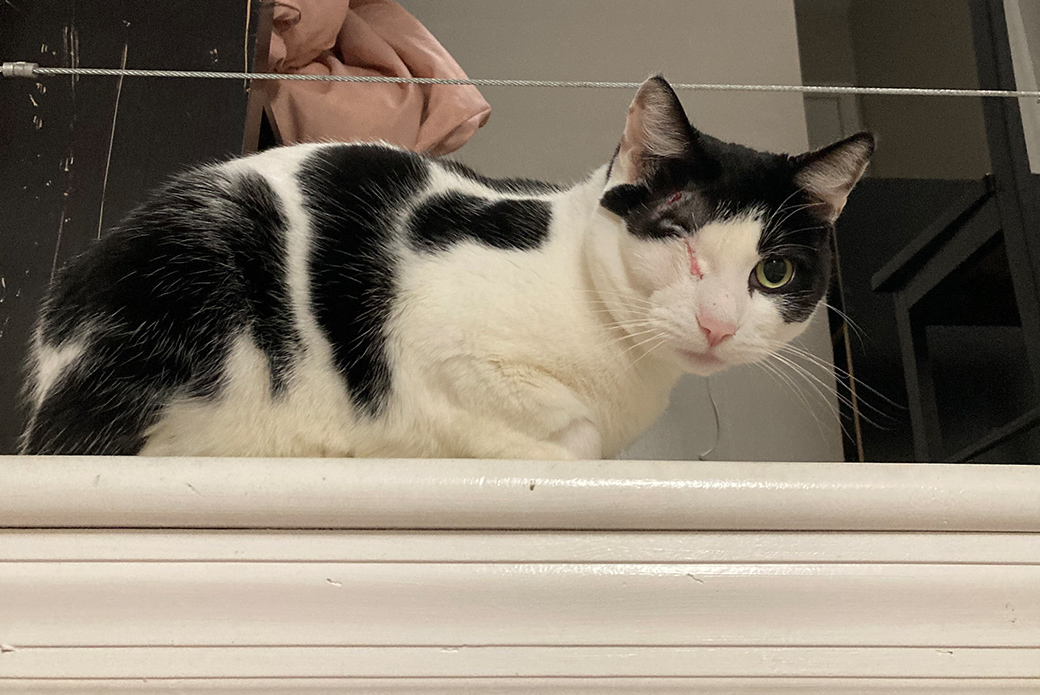
“She may look like she’s permanently winking,” says Dr. Whitehead.
“Depth perception is mildly affected in one-eyed cats, but this is not a significant problem for housecats like Charlene. Most of these animals don’t seem to have trouble adjusting.”
Tarek took Charlene home the following day and brought her back two weeks later for a re-check. “She was super happy and comfortable,” reports Dr. Whitehead. “We removed the sutures without a problem.”
A Renewed Bond
Tarek confirms that one-eyed Charlene is doing well.
“She’s a real trooper,” he says. “She’s the same cat but even more brazen now. She hops up on counters, chases her tail, plays fetch. It’s remarkable.”
Tarek’s bond with Charlene dates back to his college years when she was a six-month-old, semi-outdoor kitten with no permanent home.
“She’s my emotional support cat—incredibly calming,” Tarek says. “Petting her is very therapeutic, and she’s gotten me through some tough times. She keeps me grounded.”

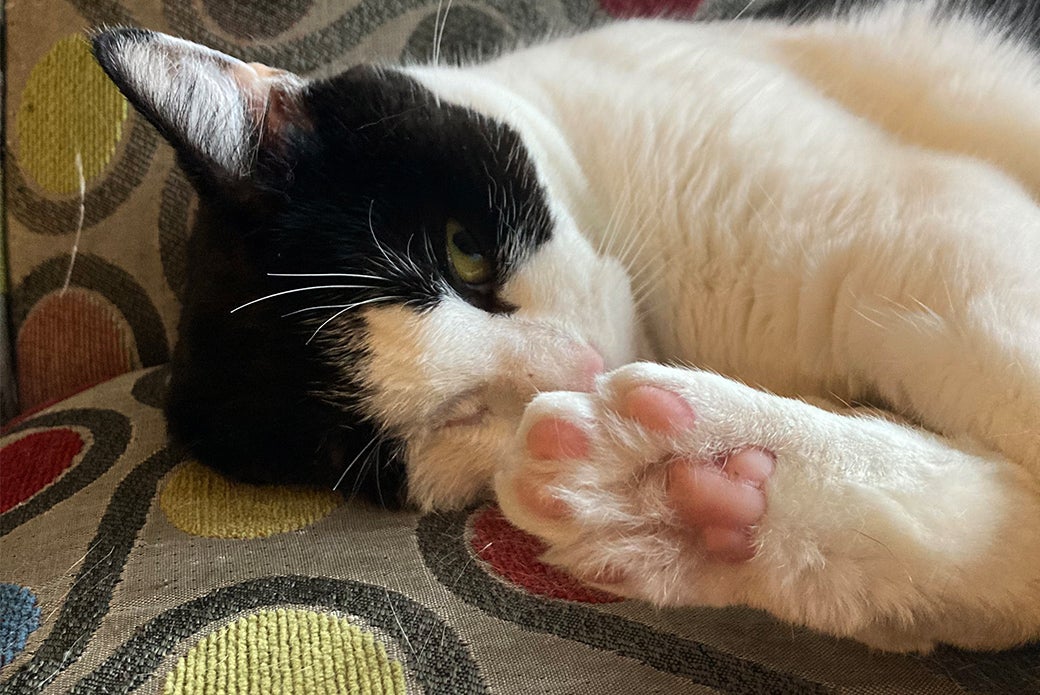
“When I couldn’t afford her surgery. It was heartbreaking,” Tarek adds.
“Circumstances like Tarek’s can force even the most devoted pet owner to consider relinquishing a beloved animal,” says Joel Lopez, Vice President of the ASPCA Adoption Center. “Providing support that helps people keep their pets at home and out of shelters is extremely beneficial to pets, their owners, and other animals who rely on the shelter.”
When Tarek picked up Charlene on November 24, Tori took a photo of them to share with ASPCA staff.

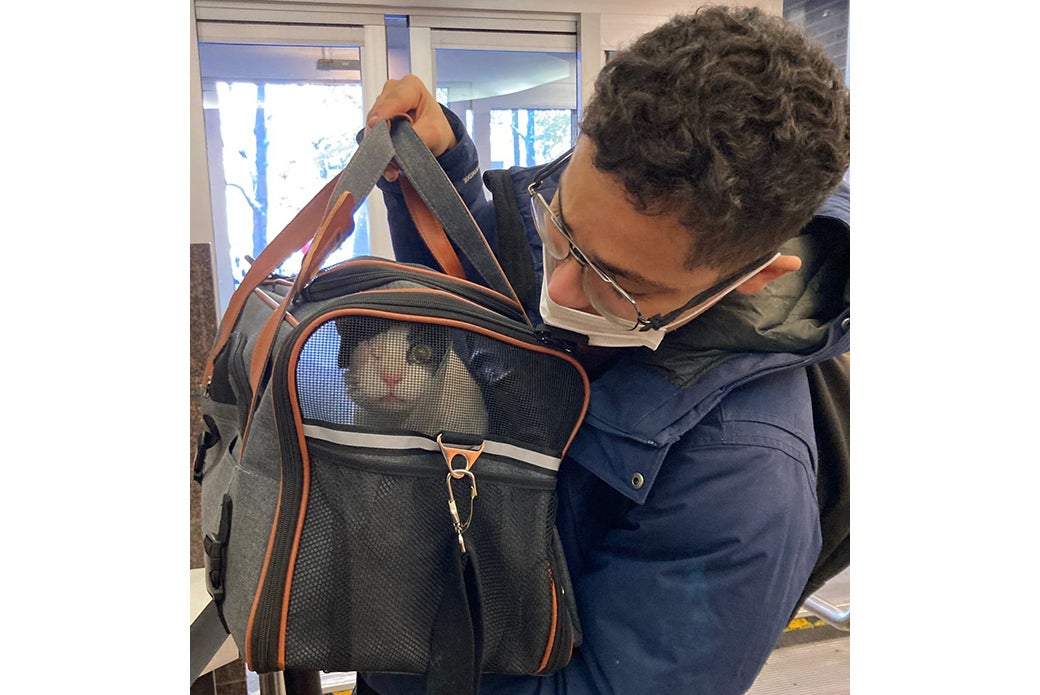
“He was so thankful to have his kitty back,” Tori says. “It was a wonderful moment for all of us.”
Source: Read Full Article